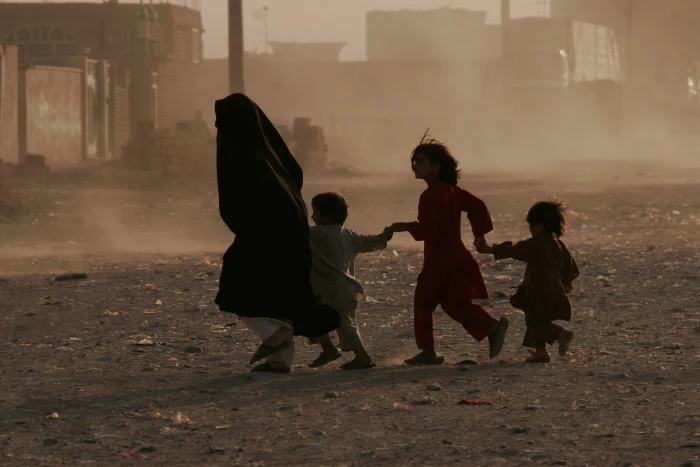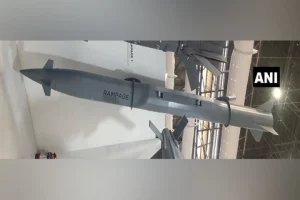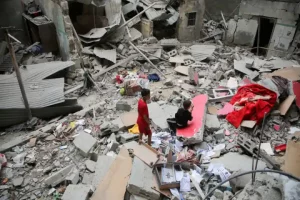With the airlifts out of Kabul ending after the exit of US forces, hundreds of thousands of Afghans fleeing the country are now making a desperate attempt to seek safety across the borders, especially in Spin Boldak region neighbouring Pakistan's Balochistan province.
Located on the southern edge of Afghanistan's Kandahar province, the Spin Boldak-Chaman land border crossing between Pakistan and Afghanistan has witnessed a huge influx of Afghans, and also several violent clashes, in the last few weeks.
It was also in the Spin Boldak district that Indian photo journalist Danish Siddiqui was brutally tortured to death by the Taliban in July when it captured the strategic border town from the Afghan National Army.
The border – believed to be the second busiest entry point for people and goods between Pakistan and Afghanistan after Torkham in Khyber Pakhtunkhwa – was closed by Pakistan and then reopened on July 26. It was closed again in the first week of August, this time by the Taliban who demanded that Pakistan should not stop cross-border movement of Afghans carrying refugee or identity cards.
"Ensuring it is open for visa-free travel would not only curry favour with ordinary Afghans, but also shore up a route to parts of Pakistan that have historically housed the insurgent group's fighters and part of its leadership," said a Reuters report which also cited Afghan government data indicating that the route was used by 900 trucks a day before the Taliban seized it.
Reopened after violent clashes and massive protests by stranded Afghans, it is now seeing a huge jump in the number of people crossing the border – some reports say around 20,000 daily – as the situation continues to deteriorate sharply.
Not Kabul airport, this is #SpinBoldak / #Chaman border between Afghanistan- Pakistan. via @natiqmalikzada
pic.twitter.com/FOUI8VFaPR— حسن سجواني 🇦🇪 Hassan Sajwani (@HSajwanization) August 26, 2021
Several videos on social media have confirmed a similar chaos being witnessed in Torkham bordering Afghanistan's Nangarhar province even though Pakistan's Interior Minister Sheikh Rasheed Ahmed has stated that the situation is normal at the Pak-Afghan border.
Hundreds of Afghans continued to gather at the Spin Boldak-Chaman border with Pakistan over the weekend amid the ongoing political turmoil in Afghanistan. pic.twitter.com/hzqevz8FKF
— 5Pillars (@5Pillarsuk) August 30, 2021
"We had been expecting a huge refugee influx from Afghanistan but not a single person came to Pakistan as a refugee," Rasheed was stated as saying by Geo Tv during a news conference in Islamabad on Monday.
Last month, UNHCR, the UN Refugee Agency, had urged the Iranian authorities to keep the Milak border crossing open in light of the intensifying humanitarian crisis in Afghanistan. It highlighted the plight of Afghan refugees who have been forced to flee to Iran amid intensified clashes in Nimruz province in Afghanistan's south-west.
According to the UN estimates, there are already around one million Afghan refugee cardholders in Iran who have fled protracted conflict and violence for over 40 years.
"Some Afghans will inevitably need to seek safety across the country’s borders. They must be able to exercise their right to seek international protection, and borders must be kept open for them for this purpose," said UN High Commissioner for Refugees Filippo Grandi.
Meanwhile, Tajikistan, which has already made it clear that it would not recognise any other government in Kabul "formed by force and coercion", has strengthened its forces along the border with Afghanistan to eliminate the negative consequences of instability in the country.
On Wednesday, the United States Embassy in Dushanbe announced the launching of a project to construct new facilities for a Border Guard Detachment in Ayvoj, along the Tajik-Afghan-Uzbek border.
The new Detachment Facility will replace the outdated Shahritus Detachment and allow the Border Guard Service to deploy forces more quickly to border areas in response to threats. The project is scheduled to break ground in early 2022.
Since 2002, Washington has provided over $300 million in security-sector assistance to Tajikistan and renovated or rebuilt 12 border outposts, nine border checkpoint facilities, and three training centers for border guards to help combat security threats.
"The United States and Tajikistan enjoy strong security cooperation, and this border detachment project is just another example of our shared commitment to the security and sovereignty of Tajikistan and Central Asia," John Mark Pommersheim, the US Ambassador to Dushanbe said today.
Afghanistan's another immediate neighbour, Uzbekistan, said Monday that the country will not accommodate Afghan refugees and has "totally closed" its Termez checkpoint bordering Afghanistan for "security reasons" with no plans of reopening it.
This even as the UN Secretary-General Antonio Guterres called on governments Tuesday night to provide timely, flexible funding for Afghanistan's people in their "darkest hour of need" as the humanitarian crisis looms.
"Amid a severe drought and with harsh winter conditions on the horizon, extra food, shelter and health supplies must be urgently fast-tracked into the country," said Guterres.
Also Read: After US exit, Iran hopes to lead global diplomacy to end conflict in Afghanistan




















